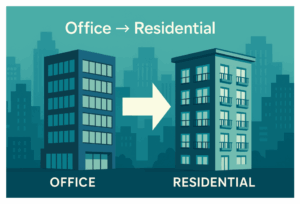
בלוג
למה משקיעים זרים אוהבים את שוק הנדל”ן בתל-אביב בשנת 2025
גם לאחר שנה מאתגרת מבחינה ביטחונית, תל-אביב ממשיכה ב-2025 להוביל את שוק הנדל”ן הישראלי. שילוב של יסודות מאקרו-כלכליים יציבים יחסית, מחסור בהיצע, מסגרת מיסוי תחרותית ושוק יוקרה צומח יוצר פרופיל תשואה-סיכון שמושך משקיעים מוסדיים ומשקי הון-משפחה מכל העולם. 1. יסודות מאקרו-כלכליים דירוג אשראי: S&P מאשררת דירוג A/A-1 עם אופק שלילי



